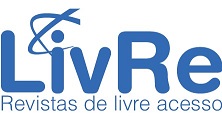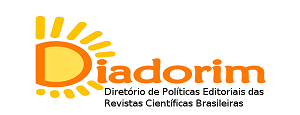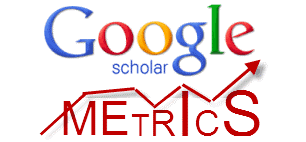O TEMA ÁGUA NAS TEMÁTICAS FÍSICO-NATURAL NO CURRÍCULO DE GEOGRAFIA DO ESTADO DE GOIÁS
DOI :
https://doi.org/10.20873/rtg.v10n21p12-32Mots-clés :
Ensino, recursos naturais, educação cidadã, orientação de conteúdo escolarRésumé
A água é um importante elemento natural para se pensar e fazer Geografia na escola, esta ideia aliada à necessidade de capacitação na formação docente em temáticas físico-geográficas é o incentivo e proposta do presente artigo. O objetivo central do da pesquisa é contribuir com o curso de formação de professores de Geografia na perspectiva de que os futuros docentes tenham uma formação que os habilite a trabalhar tais conteúdos na Educação Básica. Os objetivos específicos são: 1). Identificar no currículo de geografia do Estado de Goiás temáticas sobre a água; 2). Analisar as temáticas sobre a água no currículo do Estado de Goiás e como esse tema pode ser desenvolvido pelo professor e 3). Inferir sobre a importancia da temática água no currículo do Estado de Goiás. Para alcance dos objetivos específicos se faz necessário a metodologia de análise documental, dessa forma foi realizado a análise do currículo do ensino de geografia para o Estado de Goiás. A pesquisa é resultado parcial do trabalho de conclusãode curso e tem como recorte temporal o ano de 2018. Nesse sentindo o artigo tem como intuito de elucidar a necessidade da ampliação do olhar geográfico nas instituições que formam professores em Geografia, valendo-se dos documentos que regem o ensino básico na escala do Estado de Goiás e da carência de sistematizar a temática da água de forma geográfica, diante de contextos políticos e sociais emergentes na sociedade.
Références
BRASIL. Secretaria de Educação Fundamental. Parâmetros curriculares nacionais: geografia / Secretaria de Educação Fundamental. Brasília: MEC/ SEF, 1998. 156 p.
CALLAI, H. C. Estudar o lugar para compreender o mundo. In: CASTROGIOVANNI, A. C. (Org). Ensino de Geografia: práticas e textualizações no cotidiano. Porto Alegre: Mediação, 2000. p. 83-131.
CAVALCANTI, Lana S. A Geografia escolar e a cidade: ensaios sobre o ensino de Geografia para a vida urbana cotidiana. Campinas, SP: Papirus, 2012.
CAVALCANTI, Lana S. Geografia e práticas de ensino. Goiânia: Alternativa, 2005.
CAVALCANTI, Lana S. (Org.) Temas da Geografia na escola básica. Campinas: Papirus, 2013
CAVALCANTI, Lana S. A cidadania, o direito a cidade e a geografia escolar: elementos de geografia para o estudo do espaço urbano. Geousp, N° 5, p. 41-55, 1999.
CUNHA, D. F. da. BORGES, E. de. M. MELO, L. Estratégia para a eliminação do risco de desabastecimento de água na Região Metropolitana de Goiânia: O desafio do sistema produtor João Leite. In: COSTA, M. A. PANTOJA, I. MARGUTI, B. O (Org.). Relatos e Estudos de Caso da Gestão Metropolitana no Brasil. Rio de Janeiro: IPEA, 2014, p. 362
COLL, C. Aprendizagem escolar e construção do conhecimento. Porto Alegre: Artes Médicas, 1994.
BRASIL. Governo de Goiás. Secretária de Educação do Estado de Goiás (org.). Currículo Referência da Rede Estadual de Educação do Estado de Goiás. 2012. Disponível em: http://www.seduc.go.gov.br/imprensa/documentos/arquivos/Curr%C3%ADculo%20Refer%C3%AAncia/Curr%C3%ADculo%20Refer%C3%AAncia%20da%20Rede%20Estadual%20de%20Educa%C3%A7%C3%A3o%20de%20Goi%C3%A1s!.pdf. Acesso em: 07 maio 2021.
PESSOA, Romualdo. Enquanto a chuva cai a água se esvai - escassez e estresse hídrico. 2017. Disponível em: https://gramaticadomundo.blogspot.com/2017/11/enquanto-chuva-cai-agua-se-esvai.html. Acesso em: 07 maio 2021.
MARTÍN, María. Parabéns, senhor Alckmin! Prêmio Lúcio Costa, que o governador paulista vai receber por sua gestão sobre a crise hídrica, é bastante questionável. El País, [S. l.], p. B1, 24 set. 2015. Disponível em: https://brasil.elpais.com/brasil/2015/09/24/politica/1443105363_430119.html. Acesso em: 9 abr. 2019.
MORAIS, Eliana Marta Barbosa de. As temáticas físico-naturais nos livros didáticos e no ensino de Geografia. Revista Brasileira de Educação em Geografia. v. 4, p. 175-194. 2014.
MORAIS, Eliana Marta Barbosa de. O ensino das temáticas físico-naturais na Geografia escolar. Tese (Doutorado). Departamento de Geografia, Faculdade de Filosofia, Letras e Ciências Humanas, Universidade de São Paulo (USP). São Paulo, 2011.
NEAD UESC. Currículo: um grande desafio para o professor. Disponível em: http://nead.uesc.br/arquivos/biologia/modulo_6_bloco_3/3_o_curriculo_escolar/material_apoio/texto_curriculo_um_grande_desafio_para_o_professor.pdf. Acesso em 15 novembro de 2017.
ONU. Water, a Shared Responsibility. Report, EUA, 2006. Disponível em: http://www.unesco.org/new/fileadmin/MULTIMEDIA/HQ/SC/temp/wwap_pdf/WWAP%20WWDR2%20Facts%20and%20Figures.pdf. Acesso em: 9 abr. 2019
SANTOS, M. A natureza do espaço. Técnica e tempo. Razão e emoção. Hucitec: São Paulo, 1997.
SAVIANI, Nereide. Elaboração e implementação do currículo: Alguns enfoques e problemas atuais. Revista do SIMPEEM, N. 3, São Paulo, fevereiro de 1996.
TRINDADE, A. A Cançado. Direitos humanos e meio ambiente: Paralelo dos Sistemas de Proteção Internacional. Porto Alegre: Sergio Antonio Fabris, 1993.
Téléchargements
Publié-e
Comment citer
Numéro
Rubrique
Licence
Revista Tocantinense de Geografia ne rémunère aucun auteur pour la publication de ses textes. Le contenu des textes publiés dans cette revue relève de la responsabilité des auteurs.








.png)












